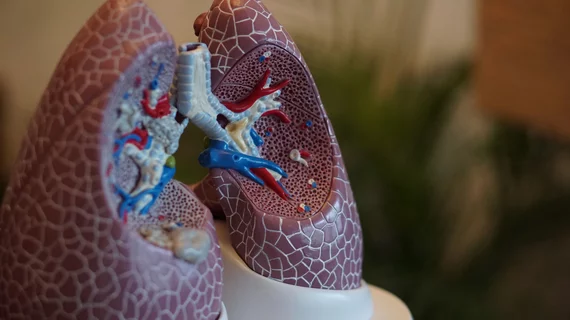Artificial intelligence predicts if lung nodules found on CT will become cancerous
Dutch researchers have trained artificial intelligence to accurately predict whether lung nodules detected on low-dose CT will become cancerous, according to new research published Tuesday in Radiology.
Researchers built their program using images of more than 16,000 nodules—including 1,249 malignancies—gathered from the National Lung Screening Trial. AI performed similarly to trained physicians, they noted, and may be useful in helping save time and boost productivity.
“As it does not require manual interpretation of nodule imaging characteristics, the proposed algorithm may reduce the substantial interobserver variability in CT interpretation," senior author Colin Jacobs, PhD, an assistant professor in the Department of Medical Imaging at Radboud University Medical Center in Nijmegen, the Netherlands, said Tuesday. "This may lead to fewer unnecessary diagnostic interventions, lower radiologists' workload and reduce costs of lung cancer screening."
Jacobs et al. validated their AI program on three large imaging data sets from the Danish Lung Cancer Screening Trial. They found “excellent results,” outperforming the established Pan-Canadian Early Detection of Lung Cancer model while going toe-to-toe with four thoracic radiologists and five rad residents.
The research team will look to improve their algorithm by adding further parameters such as age, sex and smoking history. And while their AI proposal is “highly suitable” for analyzing nodules during the initial CT screening, Jacobs and colleagues are developing a deep learning program that can take multiple exams at input. They hope these improvements can help to detect cancerous nodules at subsequent screenings, track growth and gauge appearance in comparison to the baseline exam.
You can read the full study in RSNA’s Radiology and a corresponding editorial here.

